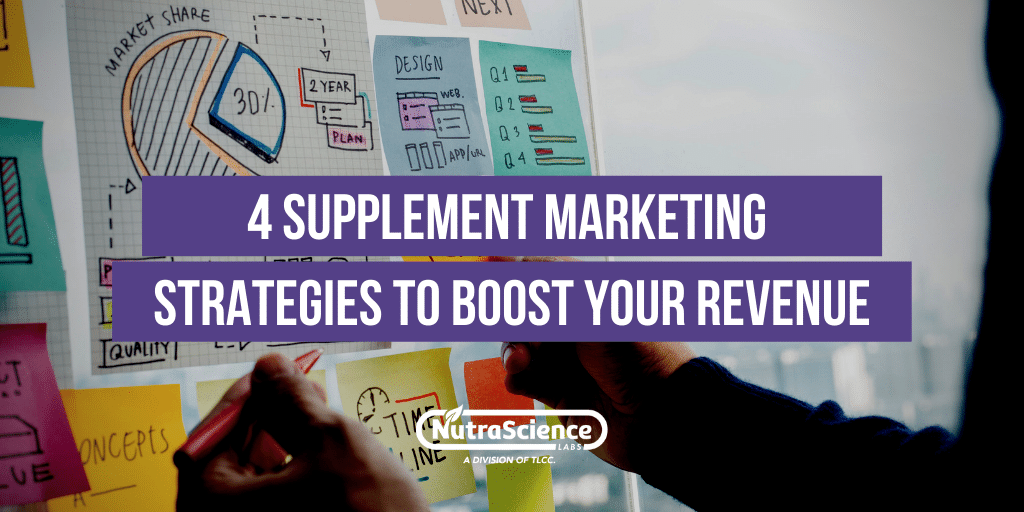The Many Facts of Personalized Nutrition
This isn’t just a hunch. CRN’s 2016 Supplement Consumer Survey revealed that while still dominant, multivitamin use was dropping off and personalized supplementS were becoming more popular.
Between the rise of the Millennial consumer and a general shift of attention toward personalized nutrition, supplement manufacturers won’t long be able to ignore a growing fact about today’s supplement consumer—generic just isn’t enough anymore.
Personalized nutrition is a pretty broad concept though, so let’s take a look at some of the most common paths of personalization that consumers are taking in respect to supplement use.
Nutrigenetics and Nutrigenomics
Scientists largely believe that an understanding of individual genetic variance can help consumers make more personalized lifestyle choices around the supplements they take. Understanding how that plays out is the study of nutrigenetics.
According to José M. Ordovás, PhD, director, Nutrition and Genomics, and professor, Nutrition and Genetics, at the Jean Mayer USDA Human Nutrition Research Center on Aging, Tufts University (Boston)...
"...[nutrigenetics] has as its main goal to understand the gene-based differences in response to dietary components and to develop recommendations that are the most compatible with the health status of
individuals based on their genetic makeup.”
That means that this branch of science holds huge opportunity to disrupt the diet and nutrition field and open the door to highly-optimized, personalized nutrition. It has particularly strong applications in the field of weight management and the identification of disease-relevant responses to dietary choices.
While related, the field of nutrigenomics goes one step further and examines how nutrition influences genome expression and concerns itself with understanding how food components and diet interact with cells, organs, and the body as a whole. Both these disciplines are a scientific approach to the use of supplements that’s very similar to personalized medicine and hold the opportunity for the verification of real, scientific results of the use of nutraceuticals and other supplements.
Demographics
While less precise, supplements that align with demographics will be more accessible and more easily understood by the general public.
Take for example, age. It’s already commonly understood that babies have specific dietary needs that support healthy development, such as the need for vitamin D to build strong teeth and bones. Older consumers though, face different challenges, such as difficulty absorbing naturally occurring B12 and deficiencies that are caused by a greater use of prescription and over-the-counter medications.
In that same vein, sex will determine nutritional needs. In a population of people over 50, women will need less iron but require more calcium as menopause begins to break down bone faster than it’s built.
There’s even some scientific evidence that geographic location and race may influence a body’s relationship to vitamins. (e.g. People living in climates that get more sun tend to manufacture vitamin D on their own.)
 Body Parts and Systems
Body Parts and Systems
This is probably the most accessible approach to personalized nutrition, since so many consumers are aware of their own specific goals and deficiencies from interacting with traditional medicine.
This category can cover a range of applications and conditions including: beauty, fertility, endocrine system, bone & joint health, and mood enhancement.
While this approach to supplements is nothing new to experienced consumers, making overt marketing efforts to connect these supplements to growing personalized nutrition trends can likely pay off.
Companies to Watch
Keeping an eye on some of the leading players in the specialized nutrition space will be useful for any player in the market.
Cambridge-based Inside Tracker uses an algorithm to analyze hundreds of data points that put lab results into an individual context and suggests an “optimized zone” for biomarkers based on gender, age, activity level, and ethnicity. The company doesn’t sell supplements but instead makes recommendations to customers.
Ixcela takes a more fitness-based approach by using blood samples to analyze metabolites that outline the gut microbiome and the biochemical balance of the body to determine “internal fitness”. The company then delivers branded supplements and recommendations along with its proprietary product ProBiome.
Lastly, DayTwo focuses on using personalized nutrition to maintain optimal blood sugar levels. It does this by studying the gut biome and individual metrics. The research-based company then provides “personalized, actionable insights” for its customers.
With companies like Campbell’s investing tens of millions in personalized nutrition, it’s a safe bet that this is a sector to pay attention to.
NutraScience Labs - Your "One Stop" Contract Manufacturer of Dietary Supplements
If you need some guidance improving your marketing and preparing for a more specialized world of supplements, check out these 4 Tips for Successfully Marketing Your Nutritional Supplements Line.



 Body Parts and Systems
Body Parts and Systems





